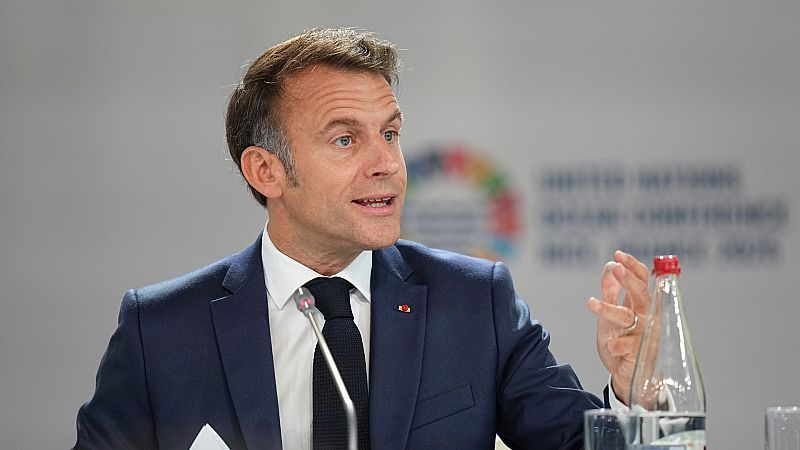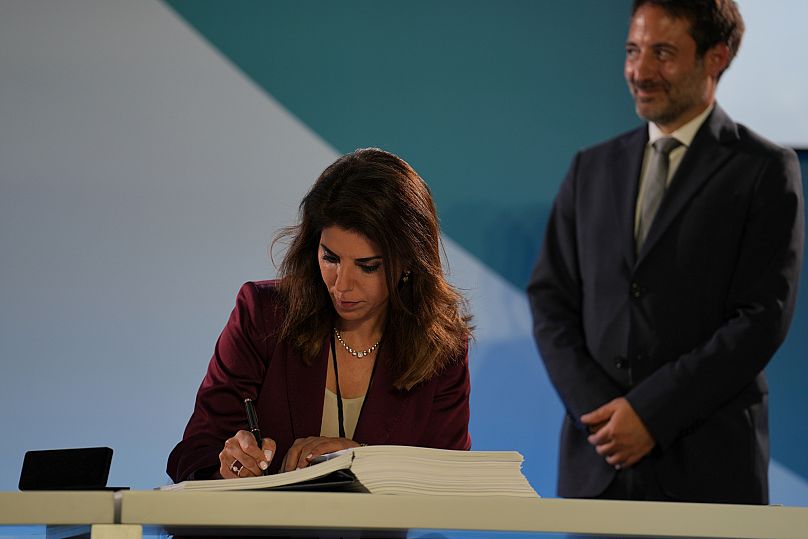
Eighteen countries ratified the High Seas Treaty on Monday, bringing the total to 49 - just 11 short of the 60 needed for the landmark ocean agreement to enter into force.
At the UN Ocean Conference (UNOC) in Nice, 18 countries formally ratified the agreement to protect the high seas.
Guinea-Bissau, Liberia, Côte d’Ivoire, Solomon Islands, Tuvalu, Malta, Vietnam, Jamaica, Albania, Bahamas, Belgium, Croatia, Denmark, Fiji, Mauritania, Vanuatu, Greece and Jordan now join the 31 countries plus the European Union, which formally ratified the High Seas Treaty, officially known as the Biodiversity Beyond National Borders agreement (BBNJ), before the summit.
“Today’s surge of ratifications for the High Seas Treaty is a tidal wave of hope and a huge cause for celebration”, said Rebecca Hubbard, Director of High Seas Alliance.
Hubbard said it was a "powerful victory" for those who have worked relentlessly to put the protection of the high seas at the heart of the global environmental agenda.
"With just 11 more ratifications needed for entry into force, it could be just a matter of weeks before the 60 is achieved.”
French President Emmanuel Macron said at the close of day one of the conference that the treaty has received sufficient support to take effect in early 2026.
He claimed that 55 countries' ratifications have been completed, around 15 are in progress with a definite date, and another 15 will happen before the end of the year.

That would push the total above the 60 needed for the treaty to come into force.
"This means that this treaty will be able to enter into force on January 1 of next year, which means we would finally have an international framework to regulate and administer the high seas,” Macron said.
EU pledges €40 million to ‘bring the High Seas Treaty to life’
Ahead of UNOC, the EU and six of its member states announced their ratification of the treaty. Spain and France already did so earlier this year.
At the opening of the summit on Monday, European Commission President Ursula von der Leyen said the EU had pledged €40 million in funding for the Global Ocean programme to “bring the High Seas Treaty to life”.
This money will go towards supporting African, Caribbean and Pacific nations in their efforts to ratify and implement the agreement.
“We all know the Treaty is a crucial instrument to protect our Ocean beyond borders,” she said.
“And indeed, we made it – the Treaty was agreed and adopted. And today, we are inches away from the 60 signatures for ratification.”
“The EU is proud to have ratified the BBNJ and it calls, jointly with Palau and Seychelles, all countries to join the High Ambition Coalition on BBNJ to support its ambitious implementation," Costas Kadis, European Commissioner for Oceans and Fisheries, said.
"The EU also stands with its partners to implement the BBNJ, including through the €40 million Global Ocean Program."
What is the High Seas Treaty and why does it matter?
The High Seas Treaty will allow nations to establish marine protected areas in international waters for the first time.
Despite their remoteness, the high seas are under growing pressure from overfishing, climate change and the threat of deep-sea mining. Environmental advocates warn that without proper protections, marine ecosystems in international waters face irreversible harm.
“Until now, it has been the wild west on the high seas," said Megan Randles, global political lead for oceans at Greenpeace. "Now we have a chance to properly put protections in place.”
The high seas cover around two-thirds of the world’s oceans but are largely ungoverned. They are managed through a patchwork of regional fisheries agreements, shipping conventions and scattered marine protected areas.
The agreement is intended to support the protection of these bodies of water that are outside of international jurisdictions.
Officially adopted in 2023 after nearly two decades of negotiations, 60 ratifications are needed for the treaty to become binding international law - something France was hoping would happen before UNOC. The agreement will enter into force 120 days after the 60th ratification.







